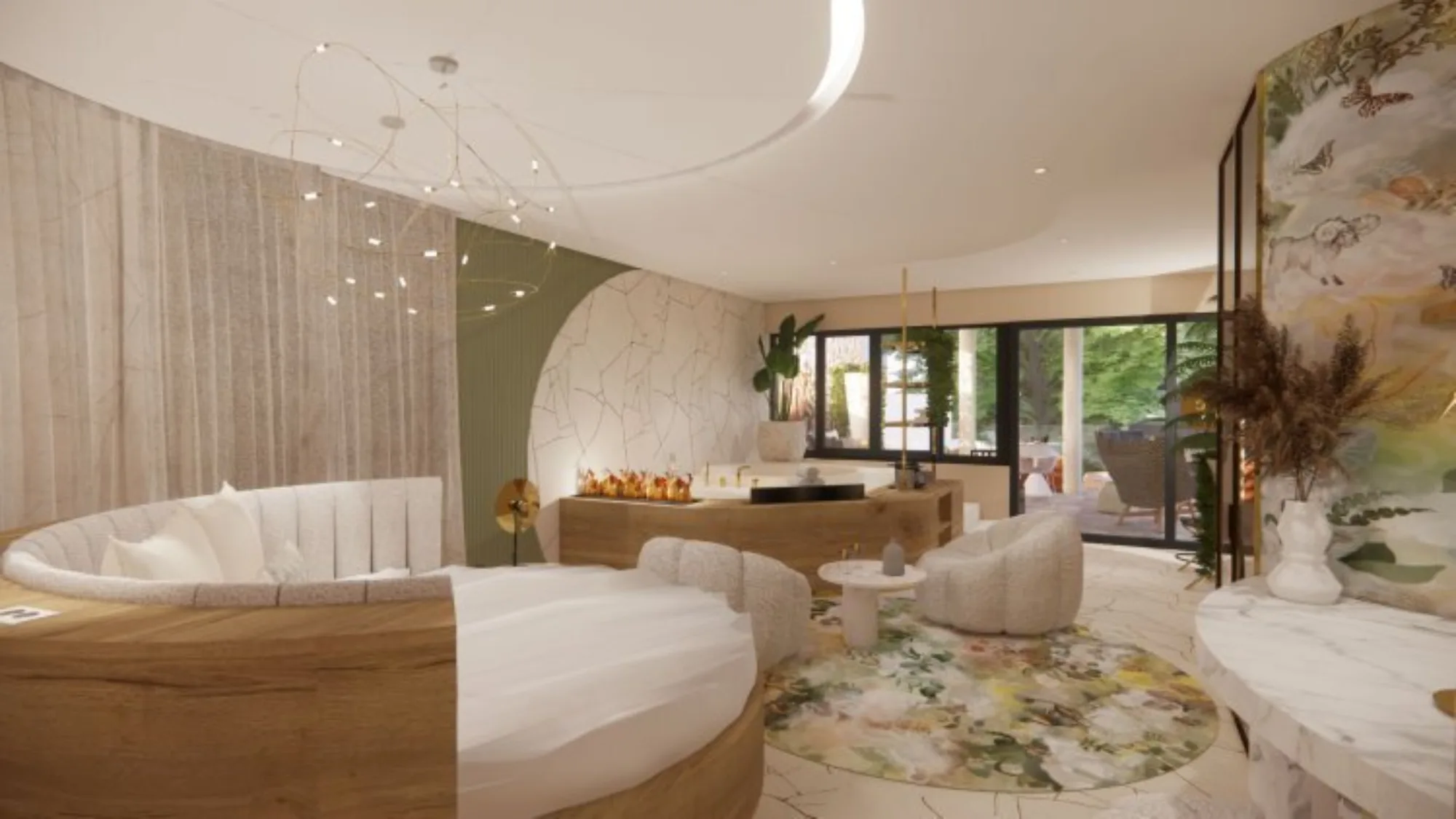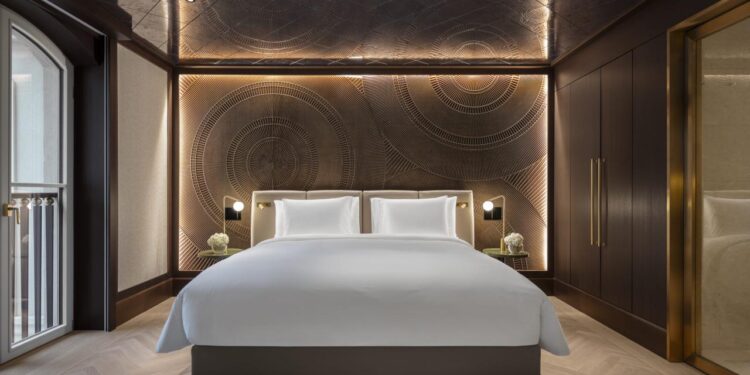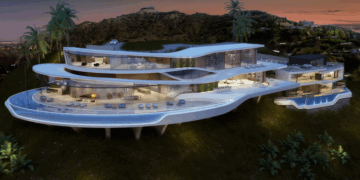2025 Luxury Hotel Trends: Redefining Hospitality and Exclusive Experiences
The luxury hotel industry is undergoing a profound transformation, moving beyond traditional notions of opulence to embrace a new era of personalized service, technological integration, and authentic, immersive experiences. As we look ahead to 2025, several key trends are set to redefine what it means to stay at a high-end property, catering to a sophisticated and discerning clientele that values exclusivity, sustainability, and well-being. This comprehensive article delves into the most significant developments shaping the future of luxury hospitality, providing a detailed look at what guests can expect from the world’s most elite hotels.
The Rise of Hyper-Personalization: The Guest is the King
In 2025, “personalization” is no longer a buzzword; it is the cornerstone of the luxury guest experience. Hotels are leveraging advanced data analytics and artificial intelligence to create a seamless and highly tailored stay for each individual. This goes far beyond remembering a guest’s preferred pillow type or minibar contents.
A. Pre-Arrival Profiling: The journey begins long before a guest even arrives. Using data from past stays, social media profiles (with consent), and direct communication, hotels are building comprehensive guest profiles. This allows them to anticipate needs and preferences, such as pre-stocking the room with a guest’s favorite brand of tea, or arranging for their preferred workout equipment to be placed in the in-room gym.
B. In-Stay Customization: During the stay, the level of personalization intensifies. AI-powered concierges can provide hyper-local recommendations for dining or activities based on a guest’s interests and mood. A guest who enjoys art may receive a personalized itinerary of local galleries, while a food enthusiast might get a list of Michelin-starred restaurants with a focus on their preferred cuisine.
C. Post-Stay Follow-Up: The personalized experience doesn’t end at checkout. Hotels are utilizing this data to send targeted offers for future stays, inviting guests back with bespoke promotions that reflect their individual tastes and past experiences. For example, a family might receive a special offer on a suite with connecting rooms, while a couple might get a romantic getaway package.
Wellness and Biohacking: The New Spa Experience
The traditional hotel spa, with its focus on massages and facials, is evolving into a comprehensive wellness center that addresses physical, mental, and spiritual well-being. Luxury hotels in 2025 are integrating advanced technology and holistic practices to offer a truly transformative experience.
A. Biohacking and Longevity: Hotels are partnering with wellness experts to offer cutting-edge biohacking treatments. This includes cryotherapy chambers for muscle recovery, IV drips for hydration and vitamin boosts, and hyperbaric oxygen therapy for enhanced cellular regeneration. These services cater to guests who are serious about optimizing their health and performance.
B. Mindfulness and Mental Wellness: Recognizing the importance of mental health, hotels are creating spaces for meditation, yoga, and sound healing. They are also offering partnerships with therapists and life coaches, providing guests with access to private consultations and workshops. This shift reflects a growing demand for a holistic approach to well-being that goes beyond physical pampering.
C. Sleep Optimization: Luxury hotels are investing in technologies to help guests achieve optimal sleep. This includes smart mattresses that adjust to a guest’s body temperature and pressure points, circadian lighting systems that mimic natural light cycles, and soundscapes designed to promote relaxation. The “sleep concierge” is becoming a new position, trained to guide guests through a personalized sleep ritual.

The Integration of Technology: Seamless and Discreet
Technology in luxury hotels is no longer about flashy gadgets; it’s about creating a seamless, intuitive, and discreet experience that enhances the guest’s stay without being intrusive.
A. Contactless and Keyless Access: Mobile devices are replacing traditional key cards, allowing guests to check in, access their rooms, and control in-room amenities (lighting, temperature, curtains) with a simple tap on their phone. This not only offers convenience but also provides a sense of security and efficiency.
B. AI-Powered Services: In 2025, AI is the silent partner in a hotel’s operations. AI-powered chatbots can handle basic inquiries, freeing up human staff to focus on more complex, high-touch interactions. Predictive analytics help hotel management anticipate peak times for various services, ensuring that staff are always prepared to meet guest demand.
C. Interactive and Immersive Experiences: Technology is being used to create engaging and memorable experiences. Think virtual reality tours of the property, augmented reality guides to local attractions, and interactive art installations in public spaces. This blends the physical and digital worlds, creating a new layer of entertainment and engagement for guests.
Sustainability and Purpose-Driven Travel: The Conscience of Luxury
Today’s luxury traveler is increasingly eco-conscious and socially aware. They are seeking out hotels that not only offer an exceptional experience but also demonstrate a commitment to environmental stewardship and local community support.
A. Eco-Conscious Operations: Hotels are implementing innovative sustainable practices, from using renewable energy sources and reducing water consumption to eliminating single-use plastics and sourcing local, organic produce for their restaurants. This commitment is not just a marketing ploy; it is becoming a fundamental part of the hotel’s operational philosophy.
B. Community Engagement: Luxury hotels are forging deeper connections with the local community. They are employing local artisans, partnering with non-profits, and offering curated experiences that introduce guests to the authentic culture and traditions of the region. This gives guests a sense of purpose and helps them feel more connected to their destination.
C. Transparency and Accountability: Guests want to know that a hotel’s sustainability claims are genuine. Hotels are providing transparent reports on their environmental impact and social initiatives, often gaining third-party certifications to validate their efforts. This builds trust and loyalty among a new generation of travelers who vote with their wallets.
The Evolution of Design: From Opulence to Authenticity
The aesthetic of luxury hotels is shifting from a focus on excessive opulence to a more authentic, residential, and story-driven design. The goal is to create a sense of place and make guests feel at home, albeit in a highly curated and elevated environment.
A. Residential and Comfort-Driven Spaces: Hotel rooms are being designed to feel less like a temporary accommodation and more like a high-end apartment. This includes the use of natural materials, comfortable and functional furniture, and a focus on creating cozy nooks for relaxation. The lines between hotel and home are blurring.
B. Storytelling Through Design: Every design element, from the artwork on the walls to the textiles on the bed, is being used to tell a story about the hotel and its location. Hotels are commissioning local artists, incorporating traditional crafts, and using materials that reflect the surrounding environment. This creates a unique and memorable sense of place.
C. Biophilic Design: The integration of nature is a key design trend. Hotels are incorporating lush vertical gardens, indoor water features, and large windows that connect guests to the outdoors. This not only enhances the aesthetic but also has proven benefits for mental well-being and stress reduction.
The Rise of Niche and Experiential Travel: Beyond the Basic Stay
Modern luxury travelers are no longer satisfied with simply booking a room; they are seeking out unique and highly specific experiences that align with their passions and interests. This has led to the emergence of highly specialized hotel concepts.
A. Adventure and Wilderness Lodges: High-end lodges in remote locations are offering curated adventure experiences, such as guided safaris, heli-skiing, or private treks. These properties combine luxurious accommodations with unparalleled access to nature, catering to a clientele that values both comfort and a sense of exploration.
B. Culinary and Gastronomy-Focused Hotels: Food is becoming a central theme for many luxury properties. These hotels offer private cooking classes with renowned chefs, exclusive wine pairings, and partnerships with local farms to provide a true farm-to-table experience. The hotel itself becomes a culinary destination.
C. Art and Culture Immersions: Hotels are transforming into cultural hubs, with on-site art galleries, artist-in-residence programs, and partnerships with local museums and performance venues. Guests can enjoy private art tours, exclusive access to exhibitions, and workshops with local creatives.
The Evolution of Staff: The Human Element of Luxury
Despite the rise of technology, the human element remains a critical component of the luxury hotel experience. In 2025, hotel staff are not just service providers; they are “experience curators” and “personal concierges” who anticipate needs and build genuine relationships with guests.
A. The Hyper-Skilled Employee: Staff members are receiving advanced training in a variety of areas, from conflict resolution and emotional intelligence to a deep knowledge of local culture and history. They are empowered to make decisions on the spot to ensure guest satisfaction, rather than needing to seek approval from a manager.
B. Empathetic and Intuitive Service: The best luxury hotels are hiring for empathy and intuition. Staff members are trained to read a guest’s non-verbal cues and anticipate their needs before they are even articulated. This creates a sense of effortless service that is both highly personal and discreet.
C. Storytelling and Personal Connection: Staff members are encouraged to share personal stories and connect with guests on a deeper level. A concierge might recommend a hidden local gem based on a personal experience, or a server might share the story behind the local ingredients in a dish. This adds a layer of authenticity and warmth to the entire stay.
Conclusion
The luxury hotel industry in 2025 is a dynamic and ever-evolving landscape. It is a world where technology and human connection coexist, where opulence is redefined by authenticity and purpose, and where the guest experience is meticulously crafted to be a personal and unforgettable journey. The trends outlined in this article – from hyper-personalization to a focus on well-being and sustainability – are not just fleeting fads. They represent a fundamental shift in what modern luxury means, catering to a new generation of travelers who seek more than just a place to stay; they seek a transformative experience.











